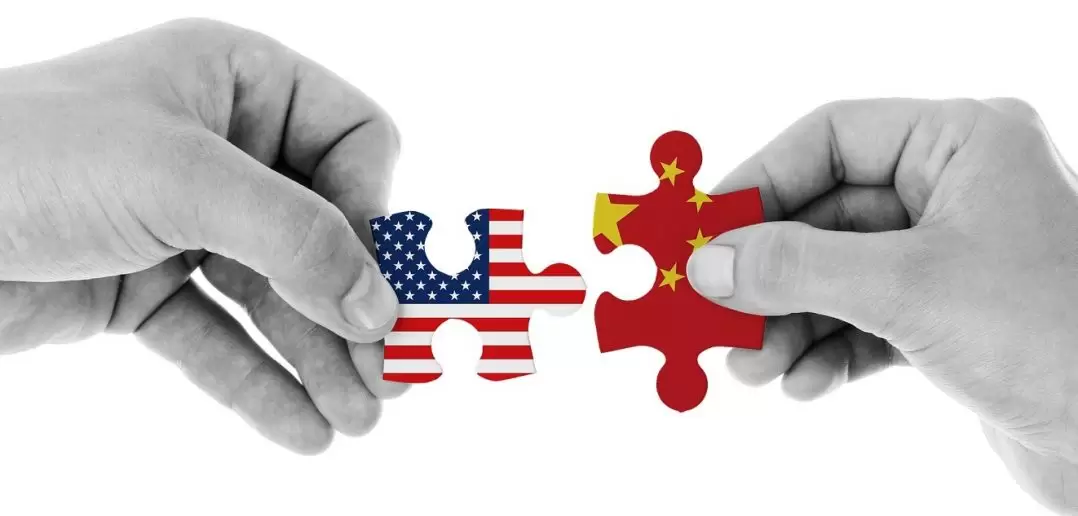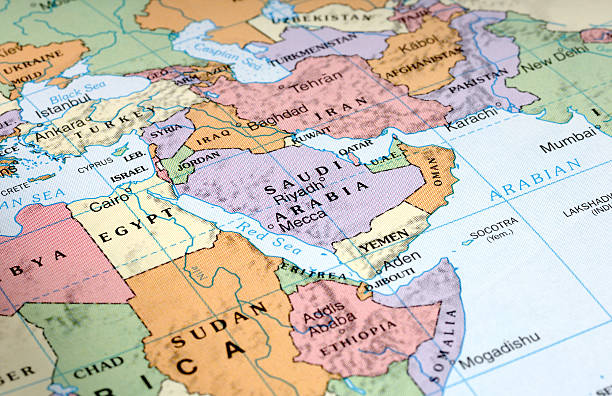
China-US Relations
Ali Tuygan
Presidents Biden and President Xi Jinping had their next-to-last call on March 18, 2022, less than a month after Russia’s invasion of Ukraine. Since then,
On July 7, the heads of the UK and US security services made an unprecedented joint appearance to warn of the threat from China. The BBC reported that FBI director Christopher Wray said China was the “biggest long-term threat to our economic and national security” and had interfered in politics, including recent elections. The MI5 head Ken McCallum said his service had more than doubled its work against Chinese activity in the last three years and would be doubling it again.
On July 29, NATO leaders met in Madrid. The summit declaration named Russia as the most significant and direct threat to Allies’ security and to peace and stability in the Euro-Atlantic area and also said that allies face systemic competition from those, including China, who challenge allied interests, security, and values and seek to undermine the rules-based international order.
For the first time, NATO’s 2022 Strategic Concept said that China’s stated ambitions and coercive policies challenge NATO members’ interests, security, and values.
Last Wednesday the US Senate passed a $280 billion bill aimed at building up America’s manufacturing and technological edge to counter China.
But attention focused on House Speaker Nancy Pelosi’s “visit to Taiwan” and President Biden’s remarks on the visit prompted the Washington Post to publish an editorial titled “Pelosi should go to Taiwan — when the time is right”.[i]
Last Thursday the two presidents spoke again. Following the call, a White House official said the conversation was substantive, candid and basically took three parts.
First was a detailed discussion of areas where the two countries can work together, with a particular focus on climate change and health security, as well as counternarcotics. Second, the two leaders exchanged views on Russia’s war in Ukraine and the global impacts it is having. And third, they had an in-depth discussion on Taiwan. President Biden reaffirmed the United States’ commitment to the One China Policy. Regarding the Pelosi visit, the official said it is her decision.
Chinese readout of the call said the two Presidents had a candid communication and exchange on China-US relations and issues of interest.[ii]
According to the readout, President Xi pointed out that faced with a world of change and disorder, the international community and the people around the world expect China and the US to take the lead in upholding world peace and security and in promoting global development and prosperity. This is the responsibility of China and the US as two major countries.
President Xi objected to defining China-US relations in terms of strategic competition and presenting Chinaseas the primary rival and the most serious long-term challenge and underscored the need to maintain communication at all levels and make good use of existing channels to promote bilateral cooperation, de-escalate regional hotspots, to reduce the risk of stagflation and recession, and uphold the international system centering on the UN and the international order underpinned by international law.[iii]
President Xi, the readout said, elaborated on China’s principled position on the Taiwan question adding, “Those who play with fire will perish by it. It is hoped that the US will be clear-eyed about this. The US should honor the one-China principle and implement the three joint communiqués both in word and in deed.”
If the areas, where China and the US can focus on are climate change health security, and counternarcotics, and if all Secretary Blinken and Foreign Minister Lavrov can speak about is prisoner exchange, this is a huge problem. There is no doubt that climate change as shown by devastating forest fires, droughts and floods is the number one challenge facing the human race. But forming a global coalition that is able to take decisive action to fight climate change requires more than cooperation on health security and counternarcotics. It requires ending wars, promoting global security, arms control, and a shift from military spending to climate-friendly projects.
By contrast, the war in Ukraine continues with no end in sight. The Middle East is years away from stability. JCPOA’s future remains uncertain. And tensions are likely to rise in the Indo-Pacific. Total global military expenditure increased by 0.7 percent in real terms in 2021, to reach $2113 billion. The five largest spenders in 2021 were the United States, China, India, the United Kingdom, and Russia, together accounting for 62 percent of expenditure, according to new data on global military spending published by the Stockholm International Peace Research Institute (SIPRI).[iv]
During the past two decades, the US fought its longest war in Afghanistan, invaded Iraq, encouraged Georgia to challenge Russia, and took part in Arab spring interventions. All proved failures. The Taliban are back. Iraq is in turmoil. Parts of Georgia are gone. In the meantime, China focused on its economic development. It built economic bridgeheads across the world becoming the world’s top trading nation. It avoided getting involved in international disputes, and Arab spring adventures. US officials have continuously referred to its aggressive policies, but Peking has not allowed regional questions to turn into crises. It has not resorted to force.
Washington is now engaged in intense diplomacy to counterbalance Beijing’s growing outreach in Africa and the Middle East and to broaden the opposition to Russia’s invasion of Ukraine without much success. On the contrary, many in those regions are increasingly referring to the West’s colonial past.
Washington is also trying to reinforce its bilateral security arrangements with Japan, South Korea, and Taiwan. It is seeking to form a united front against China through AUKUS, the Quad, and the Indo-Pacific Economic Framework. However, with multiple challenges on the domestic front, Washington’s dual containment of Russia and China is not a realistic policy. It would only bring Moscow and Beijing closer together and lead to discord in the Western camp.
The Chinese readout of the Biden-Xi call modestly refers to China and the US as “two major countries”. In reality, with Russia now bogged down in Ukraine, they are the world’s two leading powers. Thus, embracing multilateralism, bringing some semblance of stability to the world, and addressing global challenges is indeed their responsibility.
—————————————————————————————————
[i] https://www.washingtonpost.com/opinions/2022/07/27/pelosi-visit-taiwan-china-influence/
[ii] https://www.fmprc.gov.cn/mfa_eng/zxxx_662805/202207/t20220729_10729593.html
[iii] https://diplomaticopinion.com/2021/05/10/the-rules-based-international-order/
[iv] https://www.sipri.org/media/press-release/2022/world-military-expenditure-passes-2-









